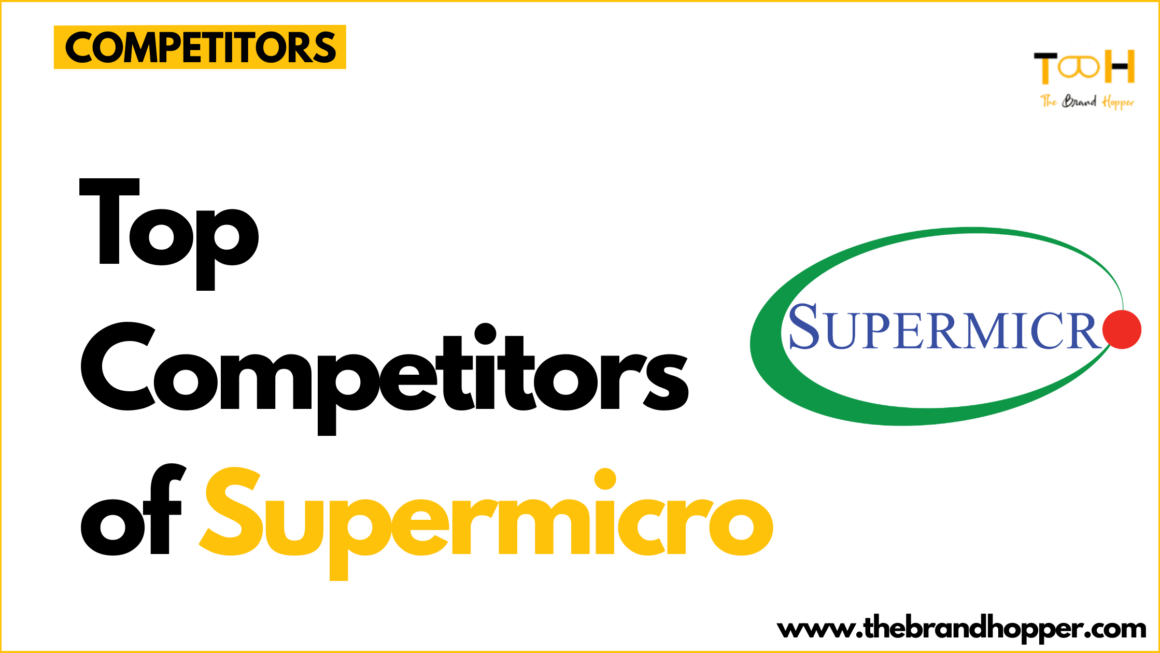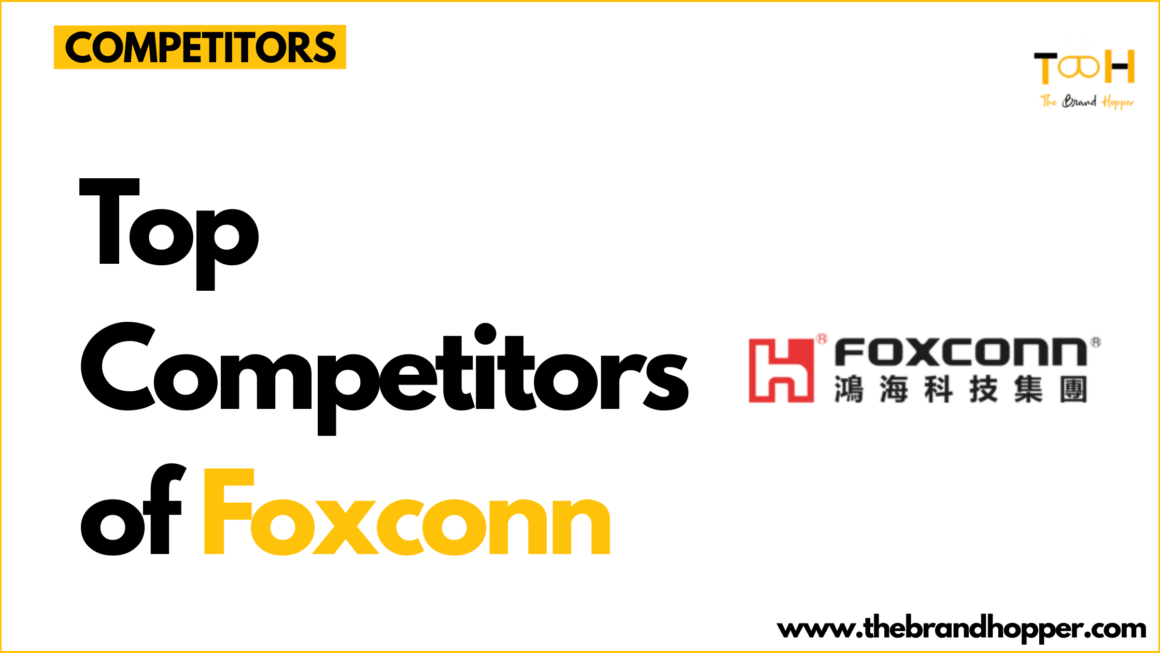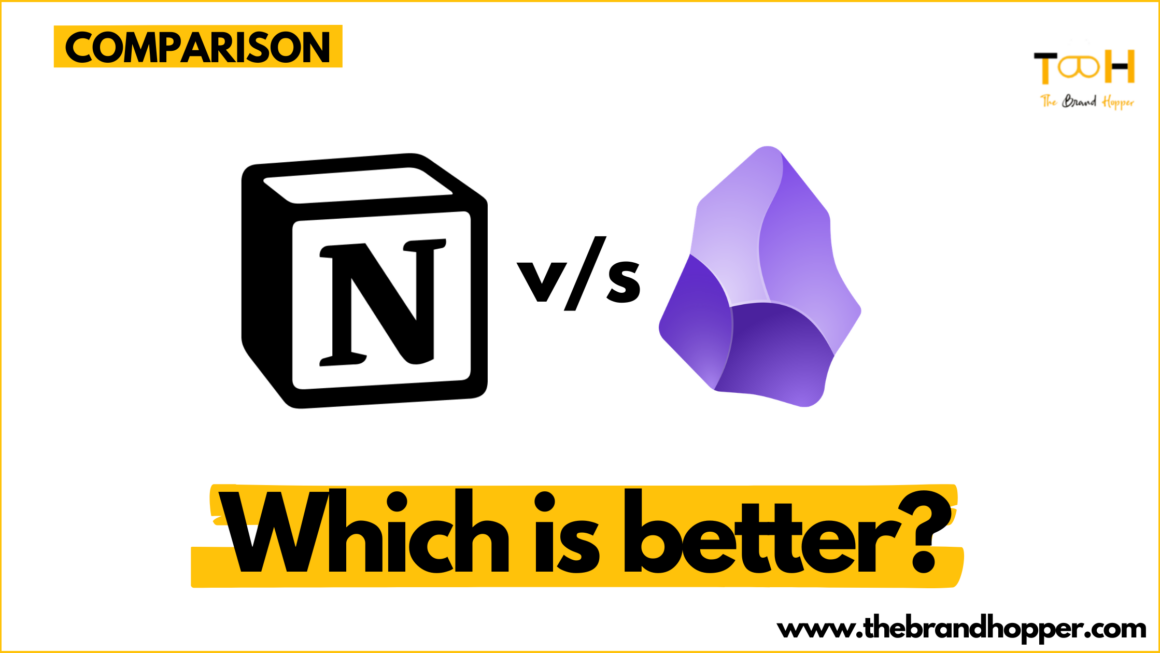AbbVie is a name synonymous with cutting-edge research and development in the biopharmaceutical industry. Established in 2013, it’s a relatively young company with a rich heritage. Born from the research-based arm of Abbott Laboratories, AbbVie quickly rose to become a global leader, tackling some of the world’s most complex health challenges.
Despite its recent founding, AbbVie boasts a successful track record. The company’s mission is clear: discover and deliver innovative medicines and solutions that improve patients’ lives. This unwavering focus on innovation has fueled the development of a robust product portfolio, addressing a wide range of autoimmune diseases.
At the forefront of AbbVie’s success story is Humira, a groundbreaking medication for treating rheumatoid arthritis, Crohn’s disease, plaque psoriasis, and ulcerative colitis. Launched in 2003, Humira revolutionized treatment options for these chronic conditions. Its immense popularity is reflected in its revenue generation, contributing significantly to AbbVie’s financial strength.
Beyond its blockbuster drug, AbbVie is actively involved in developing new and improved therapies. The company invests heavily in research and development, collaborating with over 250 external partners to push the boundaries of scientific discovery. This commitment to innovation ensures a steady pipeline of promising treatments, addressing unmet medical needs in various therapeutic areas.
AbbVie’s impact extends far beyond the realm of drug development. The company recognizes its responsibility towards patients and healthcare providers. It actively works to ensure patient access to its life-changing medications through various patient assistance programs. Additionally, AbbVie fosters strong relationships with healthcare professionals, providing them with the necessary resources and education to deliver optimal patient care.
Looking ahead, AbbVie remains dedicated to its mission of improving lives. With a robust financial standing and a relentless pursuit of scientific advancements, the company is well-positioned to continue its impressive trajectory. As AbbVie delves deeper into uncharted territories of medical research, its discoveries hold the potential to revolutionize healthcare and provide hope for millions battling complex illnesses.
Top Competitors and Alternatives of AbbVie
AbbVie is a global biopharmaceutical company known for its leadership in immunology, oncology, neuroscience, and virology. Some of its most notable products include Humira (adalimumab), Rinvoq (upadacitinib), and Skyrizi (risankizumab). To understand AbbVie’s competitive landscape, we can look at its top competitors and alternatives in the pharmaceutical and biotechnology sectors. Here’s a detailed exploration of these competitors:
1. Johnson & Johnson
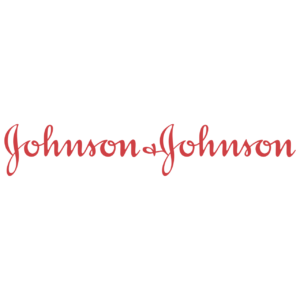
Website – https://www.jnj.com/
Johnson & Johnson is a larger company compared to AbbVie, with a market capitalization of $352 billion versus $277 billion for AbbVie, as of May 2024. J&J also has a higher revenue of $85.2 billion compared to AbbVie’s $60.1 billion, in 2023.
J&J has a significant presence in the pharmaceutical sector, with blockbuster drugs like Stelara. However, it faces upcoming generic competition for Stelara which may cap its growth. AbbVie is best known for its top-selling drug Humira, but is facing declining sales as Humira loses patent exclusivity. AbbVie is working to offset this with new drug launches and acquisitions.
While there is some overlap, AbbVie tends to focus more on specific therapeutic areas like immunology, while J&J maintains a broader portfolio across pharmaceuticals, medical devices, and consumer health. In immunology, J&J’s Remicade and AbbVie’s Humira directly compete as biologic treatments for rheumatoid arthritis. This rivalry has been fierce, with both companies battling for market share and patent rights.
J&J has demonstrated better revenue growth and profitability compared to AbbVie in recent years. It also has a stronger financial position with lower debt and higher cash reserves.
J&J’s stock currently trades at a lower valuation of 4.6x trailing revenues compared to AbbVie at 5.5x. This makes J&J more attractive based on valuation. Both companies have underperformed the S&P 500 index in certain years, indicating the competitive pressures in the pharmaceutical industry.
In summary, while AbbVie is a major player, Johnson & Johnson’s larger size, stronger financials, and more attractive valuation make it a formidable competitor in the pharmaceutical space.
2. Pfizer
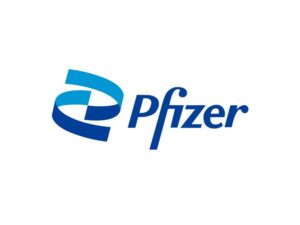
Website – https://www.pfizer.com/
While AbbVie has carved a niche for itself in the pharmaceutical landscape, it faces stiff competition from industry giants like Pfizer. Both companies share the same battlefield: developing life-saving drugs and treatments for a variety of medical conditions. This overlap in focus inevitably leads to competition, with each company vying to produce the most effective and commercially successful medications.
One key area of competition lies in the realm of autoimmune diseases. Pfizer is actively developing biosimilars, near-identical copies of AbbVie’s biologics, specifically for conditions like rheumatoid arthritis. Biosimilars offer a more affordable alternative to brand-name drugs, potentially putting pressure on AbbVie’s market share and profit margins. Additionally, Pfizer boasts its own portfolio of drugs for autoimmune diseases, such as Xeljanz, which directly competes with AbbVie’s established medications.
The competitive spirit extends beyond individual drugs. Both companies invest heavily in research and development, striving to stay ahead of the curve and discover groundbreaking treatments. This constant race for innovation ensures a dynamic market where each company pushes the boundaries of scientific exploration to deliver the best possible outcomes for patients.
3. Merck
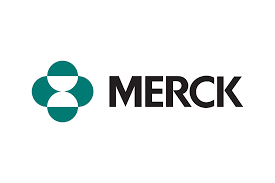
Website – https://www.merck.com/
Another formidable competitor in the pharmaceutical industry is Merck, a global healthcare leader with a long and distinguished history. While both companies share a commitment to innovation and improving patient lives, their competitive drive fuels advancements in various therapeutic areas. Here’s a closer look at how Merck challenges AbbVie’s dominance.
Merck’s robust oncology portfolio presents a significant challenge to AbbVie. Cancer treatment is a crucial battleground in pharmaceuticals, and Merck boasts successful drugs like Keytruda, a revolutionary immunotherapy medication. Keytruda’s effectiveness in treating various cancers positions it as a direct competitor to some of AbbVie’s oncology offerings. Additionally, Merck’s pipeline houses promising candidates for future cancer treatments, potentially disrupting AbbVie’s market share in this lucrative segment.
The competitive landscape extends beyond oncology. Both companies actively develop medications for other conditions, such as cardiovascular diseases and infectious diseases. Merck’s established drugs like Januvia for diabetes management and Bridion for anesthesia reversal compete with AbbVie’s offerings in these areas. This head-to-head competition drives research and development, ultimately benefiting patients who gain access to a wider range of treatment options.
4. Bristol-Myers Squibb

Website – https://www.bms.com/
In the fiercely competitive world of pharmaceuticals, AbbVie finds a particularly close rival in Bristol-Myers Squibb (BMS). Both companies boast impressive pipelines, strong research and development efforts, and a focus on similar therapeutic areas, making them mirror images in the pharmaceutical landscape. This head-to-head competition fuels innovation and ultimately benefits patients with a wider range of treatment options.
A significant area of overlap lies in oncology. Both AbbVie and BMS are powerhouses in cancer treatment, developing and marketing groundbreaking therapies. BMS’s immunotherapy drug, Opdivo, has revolutionized the way we approach cancer, directly competing with some of AbbVie’s oncology offerings. Additionally, both companies have robust pipelines filled with promising cancer treatments, constantly pushing the boundaries of what’s possible in this critical field of medicine.
The competition extends beyond cancer. AbbVie and BMS develop medications for a variety of other conditions, including immunology and hematology. For instance, BMS’s blockbuster drug, Revlimid, for treating multiple myeloma, directly competes with some of AbbVie’s established treatments in this area. This constant competition keeps both companies on their toes, driving research and development efforts to bring the most effective medications to market.
5. Roche
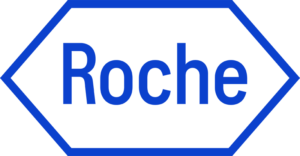
Website – https://www.roche.com/
While AbbVie has carved its niche in specific areas, it faces a formidable competitor in Roche, a global healthcare powerhouse. Both companies are titans in the pharmaceutical industry, boasting extensive product portfolios and a relentless pursuit of innovation across various therapeutic areas. This shared focus inevitably leads to a competitive dynamic that benefits patients through continuous advancements in medical treatment.
One key battleground lies in oncology. Roche, with its blockbuster drug Rituxan for treating certain lymphomas and leukemias, directly competes with some of AbbVie’s established cancer treatments. Additionally, Roche’s robust oncology pipeline houses promising candidates for the future, potentially disrupting AbbVie’s market share in this lucrative segment. Both companies are constantly striving to develop more effective and targeted therapies to combat various cancers.
The realm of competition extends beyond oncology. Both AbbVie and Roche are major players in immunology, with treatments for conditions like rheumatoid arthritis and psoriasis. Roche’s blockbuster drug, MabThera (marketed as Rituxan in the US), competes directly with AbbVie’s established medications in this area. This head-to-head competition drives research and development in immunology, ensuring a constant flow of new and improved treatment options for patients suffering from chronic inflammatory diseases.
6. Amgen
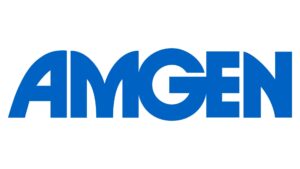
Website – https://www.amgen.com/
In the world of pharmaceuticals, competition often comes from distant corners of the industry. However, for AbbVie, a particularly interesting rivalry exists with Amgen. While both companies are major players, their competitive dynamic is unique due to their focus on different aspects of drug development.
The key difference lies in the type of drugs each company specializes in. AbbVie is a leader in brand-name biologics, complex protein-based drugs derived from living cells. Amgen, on the other hand, excels in biosimilars – near-identical copies of existing biologics that offer a more affordable alternative. This creates a unique situation where Amgen doesn’t directly develop competing drugs, but rather targets AbbVie’s established biologics with its biosimilar versions. For example, Amgen’s Amjevita is a biosimilar to AbbVie’s blockbuster drug Humira, significantly impacting AbbVie’s revenue stream for that particular medication.
Despite the focus on biosimilars, Amgen also possesses its own portfolio of innovative drugs. This allows them to compete with AbbVie in certain therapeutic areas, such as oncology and inflammation. Amgen’s Blinatumomab for treating acute lymphoblastic leukemia directly competes with some of AbbVie’s offerings in this area. Overall, the competition between AbbVie and Amgen is multifaceted, with Amgen challenging AbbVie’s dominance through biosimilars and its own innovative drug development.
7. Novartis
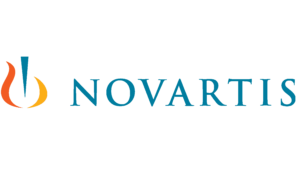
Website – https://www.novartis.com/
In the highly competitive world of pharmaceuticals, AbbVie faces a close rival in Novartis. Both companies are global giants with a strong presence in similar therapeutic areas, leading to a constant race for innovation and market share. This head-to-head competition drives advancements in drug development, ultimately benefiting patients with a wider range of treatment options.
A major battleground for these two titans is immunology. Both AbbVie and Novartis are powerhouses in this field, developing and marketing treatments for conditions like rheumatoid arthritis and psoriasis. AbbVie’s blockbuster drug Humira faces direct competition from Novartis’ Cosentyx, a medication used to treat similar conditions. This head-to-head competition pushes both companies to develop even more effective and targeted therapies for patients suffering from chronic inflammatory diseases.
The competitive landscape extends beyond immunology. Both AbbVie and Novartis have a presence in oncology, neuroscience, and ophthalmology, among other therapeutic areas. This overlap leads to competition across various drug categories. For instance, Novartis’ Afinitor for treating certain cancers competes with some of AbbVie’s oncology offerings. This constant competition keeps both companies on their toes, driving research and development efforts to bring the most effective medications to market across a broad spectrum of diseases.
8. Eli Lilly
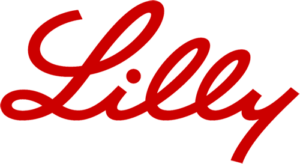
Website – https://www.lilly.com/
While AbbVie may face international competition, a significant rival lies closer to home: Eli Lilly. Both companies are American pharmaceutical giants with a strong presence in the US market, often competing head-to-head across various therapeutic areas. This domestic duel fuels innovation and ensures patients have access to a diverse range of treatment options.
A key area of competition lies in diabetes management. Both AbbVie and Eli Lilly boast successful drugs in this category. AbbVie’s Trulicity and Eli Lilly’s Mounjaro are both glucagon-like peptide-1 (GLP-1) receptor agonists, medications that help regulate blood sugar levels. These drugs directly compete for market share and patient preference in the ever-evolving diabetes treatment landscape. Additionally, both companies have robust pipelines filled with promising candidates for future diabetes therapies.
The rivalry extends beyond a single disease area. Both AbbVie and Eli Lilly develop medications for a variety of conditions, including oncology and immunology. For instance, Eli Lilly’s Verzenio for treating certain breast cancers directly competes with some of AbbVie’s oncology offerings. This head-to-head competition ensures both companies are constantly innovating and refining their treatment options across a broad spectrum of diseases. Ultimately, this domestic competition benefits patients by driving advancements in drug development and providing more choices for effective treatment.
AbbVie operates in a highly competitive landscape with several formidable competitors. Each of these companies has its strengths and focuses on different therapeutic areas. The competition drives innovation and the development of new therapies, ultimately benefiting patients worldwide. AbbVie’s continued success will depend on its ability to innovate, secure regulatory approvals, and maintain strong market access and distribution capabilities.
Also Read: Who are Johnson & Johnson’s Top Competitors?
To read more content like this, subscribe to our newsletter


